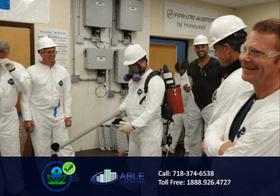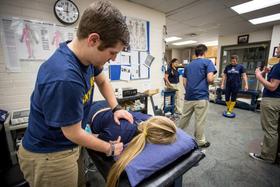Healthcare Careers Hub
As you know, healthcare is a huge industry in the United States. Since there have been significant layoffs in other sectors of the economy, whether you've been laid off or are just beginning your career, I suggest you explore healthcare. You and I think of healthcare as the domain of medical professionals such as doctors and nurses. That's only partly true. Healthcare has dozens of positions and roles, one or two of which might suit your requirements.
U.S. health care spending grew 4.1 percent in 2022, reaching $4.5 trillion or $13,493 per person. As a share of the nation's Gross Domestic Product, health spending accounted for 17.3 percent. Source: Centers for Medicare and Medicaid Services
So, to help you explore the field, I've compiled a list of some of the positions in the healthcare field, ranging from supporting roles to paraprofessional and professional roles. Healthcare offers a variety of jobs at several levels. In other words, you can earn a certificate to become a member of the profession. In fact, you don't need a four-year degree for many well-paying positions. Your community college will offer foundation courses and certifications for select positions. Contact it for more information.
We'll start with the positions requiring four or more years of education in the field.
Degreed Professionals:
Physician Assistant (PA)
Physician Assistants (PAs) work alongside physicians to diagnose illnesses, develop treatment plans, and prescribe medication. They provide essential medical care in




















